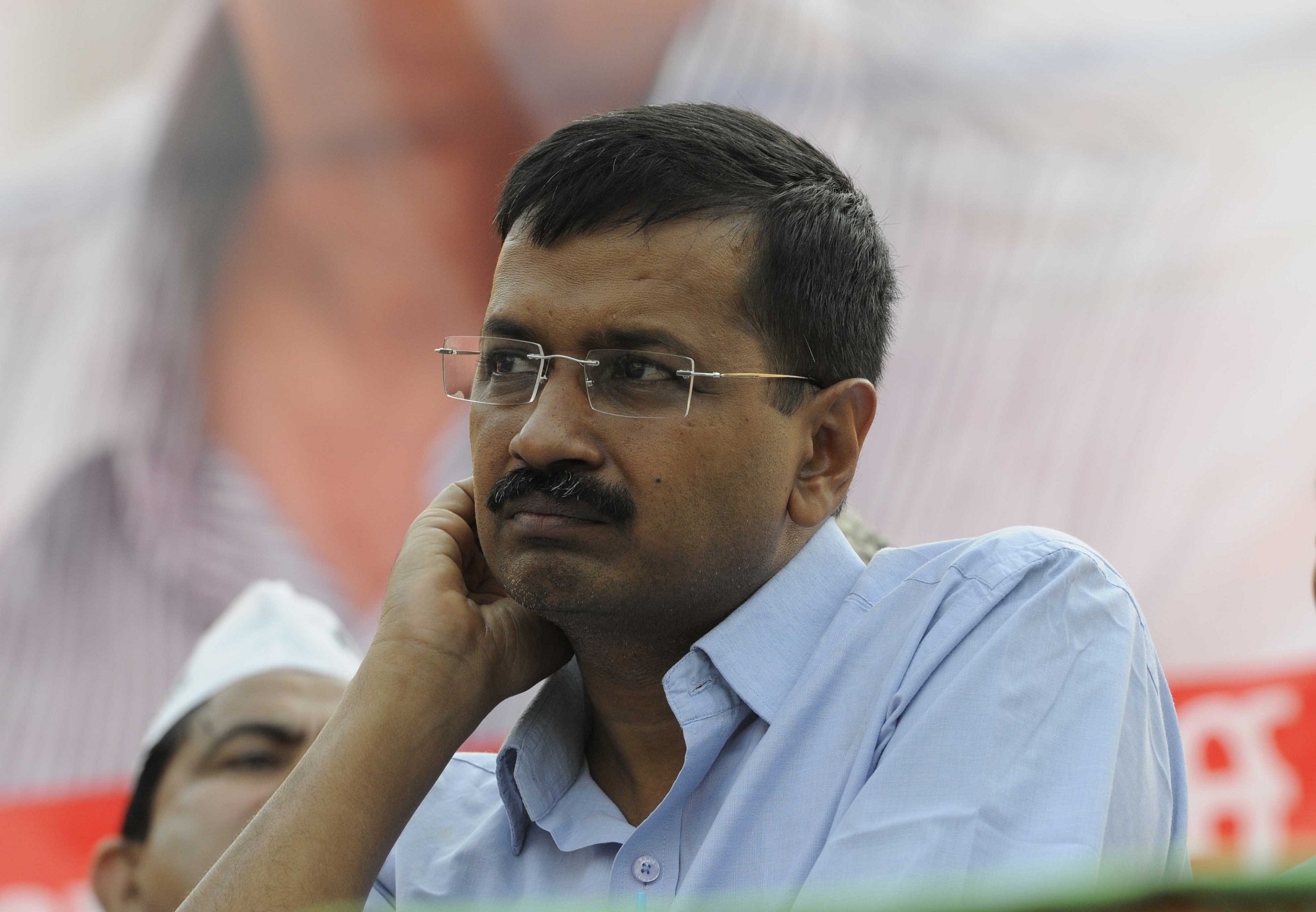Politics
Kejriwal’s Serial Apologies Are A Sign Of Political Maturity; Hope It Sustains
- The Kejriwal-Sisodia apologies are a good beginning. They should forget the derisory comments on social media and focus on the job at hand – which is governing Delhi better.
- Kejriwal should not forget that eight months after the Lok Sabha elections, he too will need to convince Delhi’s electorate that he has lived up to his mandate.

Aam Aadmi Party leader Arvind Kejriwal. (Sonu Mehta/Hindustan Times via Getty Images)
Delhi Chief Minister Arvind Kejriwal’s decision to apologise to some of the politicians he maligned has been the butt of many social media jokes. He should ignore them. He has more to lose by being over-sensitive to jokes about him than by showing the maturity he now has by apologising.
Among those he has apologised to are Akali Dal leader Bikram Singh Majithia, who was accused of being in the drug trade, Congress politician Kapil Sibal and his son Amit, and Union Minister Nitin Gadkari. Among other things, Kejriwal had accused the Sibals and Gadkari of corruption.
The only apology left is the one involving Finance Minister Arun Jaitley, who has sued Kejriwal for defamation. While some stories suggest that Jaitley may not be in a forgiving mood, Majithia, the Sibals and Gadkari have been happy to accept, and have chosen to withdraw the defamation cases filed against Kejriwal in court.
If the change of heart, where Kejriwal’s second-in-command, Deputy Chief Minister Manish Sisodia, has also chosen to eat humble pie, is genuine and not merely the result of courtroom fatigue, it should be welcomed as a sign of political maturity.
It is possible to be brash, irreverent and careless with your accusations in the first flush of success in political activism, but – at some point – it is counter-productive. Kejriwal made it to the headlines, and brought his party to power, by adopting the anti-corruption plank that emerged from the Anna Hazare movement. However, while most people believe that Indian politicians as a class are corrupt, it is not easy to prove the allegations in court, unless the corrupt have been extremely careless. Even in open-and-shut cases like that of the 2G scam, and Dayanidhi Maran’s BSNL exchange case, the prosecution has been unable to prove its point in court, either due to poor marshalling of facts, or because the system itself was suborned.
Another elementary mistake Kejriwal and Sisodia made was to make their allegations in public, and not in the assembly, where even wild accusations are protected from libel action.
Sisodia, while explaining the decision to apologise, had this to say: “If someone is hurt by our remarks, we will apologise. We will not make it a fight of ego. We are here to work for people. We have not spared time for court, we have spared time for us so that we could fight for people.”
This is both realistic and sensible. Kejriwal and Sisodia were not elected to fling accusations of corruption at all and sundry, but to do something about it.
They also need to go further. While retracting libellous statements is one thing, trying to blame Narendra Modi or the BJP for all problems in Delhi is another line he could consider giving up.
After his re-election in February 2015 with an overwhelming majority, Kejriwal spent the next two years – till the loss in the Delhi Municipal Corporation elections – fighting Modi and the Centre.
The point is this: Delhi is both a state and a Union territory, since it houses the national capital, its bureaucracy, and the global diplomatic community. If we apply the simple logic that a state can’t exercise jurisdiction over the Centre and its institutions, it follows that Delhi cannot have all the powers that other states have.
Fighting Modi was a lose-lose situation for Kejriwal, and it is good to see that he has stopped his anti-Modi rants. There is much to be gained by cooperating with the Centre, and seeking more powers through negotiation, rather than antagonising the Centre and ending up with zilch.
Kejriwal has a case for more powers, but this will involve a bifurcation of Delhi into two parts – one part, which is Union territory, where the Centre has the last word, and another part, which is for Kejriwal to govern. Broadly speaking, areas outside the New Delhi Municipal Corporation and the cantonment should be the prime responsibility the state government. Elsewhere, it can be a Union territory, where Kejriwal’s powers are limited.
What he can achieve through dialogue and persuasion he will not get through raving and ranting.
The Kejriwal-Sisodia apologies are a good beginning. They should forget the derisory comments on social media and focus on the job at hand – which is governing Delhi better. Kejriwal should not forget that eight months after the Lok Sabha elections, he too will need to convince Delhi’s electorate that he has lived up to his mandate.
Support Swarajya's 50 Ground Reports Project & Sponsor A Story
Every general election Swarajya does a 50 ground reports project.
Aimed only at serious readers and those who appreciate the nuances of political undercurrents, the project provides a sense of India's electoral landscape. As you know, these reports are produced after considerable investment of travel, time and effort on the ground.
This time too we've kicked off the project in style and have covered over 30 constituencies already. If you're someone who appreciates such work and have enjoyed our coverage please consider sponsoring a ground report for just Rs 2999 to Rs 19,999 - it goes a long way in helping us produce more quality reportage.
You can also back this project by becoming a subscriber for as little as Rs 999 - so do click on this links and choose a plan that suits you and back us.
Click below to contribute.
Latest